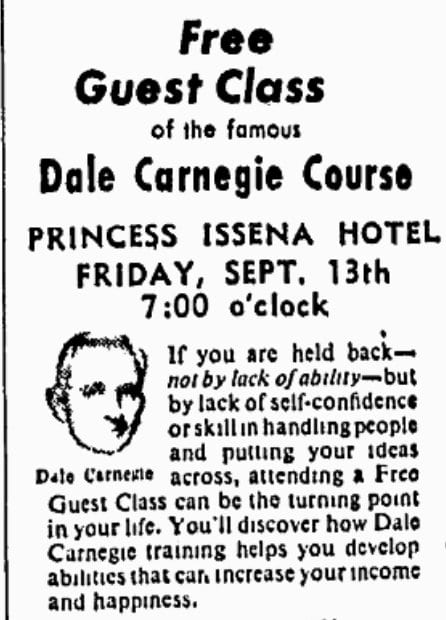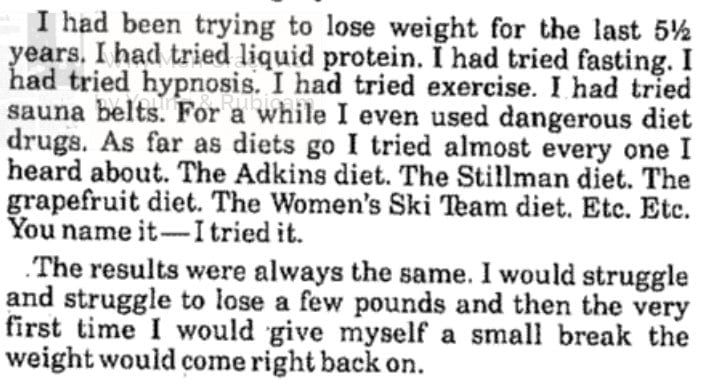The Defectiveness Schema is the most powerful driving force in copywriting.
Once you know how how to use it, your sales message is unstoppable.
The Defectiveness Schema is what drives ALL advertising.
Watch the video to see what roles defectiveness plays in your market...
... and the MOST powerful tool you can use to create stories that sell.
It's as easy as 1-2-3. Watch the video to find out more.
This week's primal persuasion secret is all about defectiveness.
The defectiveness schema.
The basic concept of the defectiveness schema is I am not lovable.
As a reminder...
Children develop coping mechanisms or schemas to survive traumatic events.
These coping mechanisms help children survive but don't necessarily serve us as adults.
Keep in mind. We're going to be talking about psychological principles.
So we're always talking in the worst case.
However, the level that each schema affects your market will be different depending on the person.
And it will be more of a range. Let's say one through 10.
Schemas determine how we think, feel, act, and relate to others.
They trigger intense feelings such as anger, sadness, and anxiety.
And copywriting 101 one says people buy emotions then justify with logic.
That's why stories created using these schemas are so powerful.
By understanding your market's primary schemas, you can create a marketing message that resonates on a psychological level.
Your market suffers from the defectiveness schema when they feel they are inwardly flawed and defective.
They're fundamentally unlovable to anyone who gets close enough to know the real them.
Maybe they were criticized as a child for flaws, and they blame themselves.
They feel unworthy of love and afraid to love so much that it's difficult to believe that people close to them value them, and they expect rejection.
The defectiveness schema in itself is the cause of Imposter Syndrome.
When you look into your market to see if they suffer from the schema's defects, they'll have these traits.
- They feel no one could love them if they knew them.
- They feel inherently flawed and unworthy of love.
- They feel it was their fault that their parents didn't love them.
- They always hide who they are and show a false self.
- Outwardly, they are drawn to friends and lovers who are critical and reject them.
- They have an internal monologue as well that does the same thing.
- They devalue their positive qualities and hold a lot of shame and fear of exposure.
Common markets with the defectiveness schema.
Dating, social products, health and fitness, self-help.
But the truth is, defectiveness runs through us all.
And according to Parris Lampropoulos, "everything we sell is about defectiveness."
Stories that work.
Make them feel bad about themselves, verify what they already think, and show them how to improve.
Give them salvation.
This is the standard copywriting basics.
The problem, agitation, solution.
The defectiveness schema runs through all markets.
Here are a few examples.
The first one is from a copywriter named Ross Jeffrey.

The Amazing Seduction Secrets of a skinny, ugly, six-foot geek from Culver City.
Notice how he's pointing out all of his defects and then still letting them know that they can get the girls.
The next one is a Dale Carnegie ad.



And the whole concept is, you know, shame and embarrassment about your lack of ability to speak and be confident.
The one on the top right here is a classic from Gary Helbert talking about all the different ways this lady has tried to lose weight, and she's failed.



In the last paragraph, you see that she struggled and struggled, and then she'll give up and give herself a small break. Then the weight comes right back on.
And then the bottom line here is from Mel Martin.



For people who are almost, but not entirely satisfied with their cooking.
I'm defective because I can't quite figure out what this cooking issue is.
In summary, people suffering from the defectiveness schema believe they are not lovable.
They have a lot of fear that if people get close, they'll see how defective they are.
The schema is the foundation of copywriting and selling to all markets. And remember problem, agitation, solution.
If you'd like to learn more about the psychology of schemas check out the book Reinventing You Life here.
If you'd like to find our more about schemas and how to use them to write killer copy check out my other articles here.
